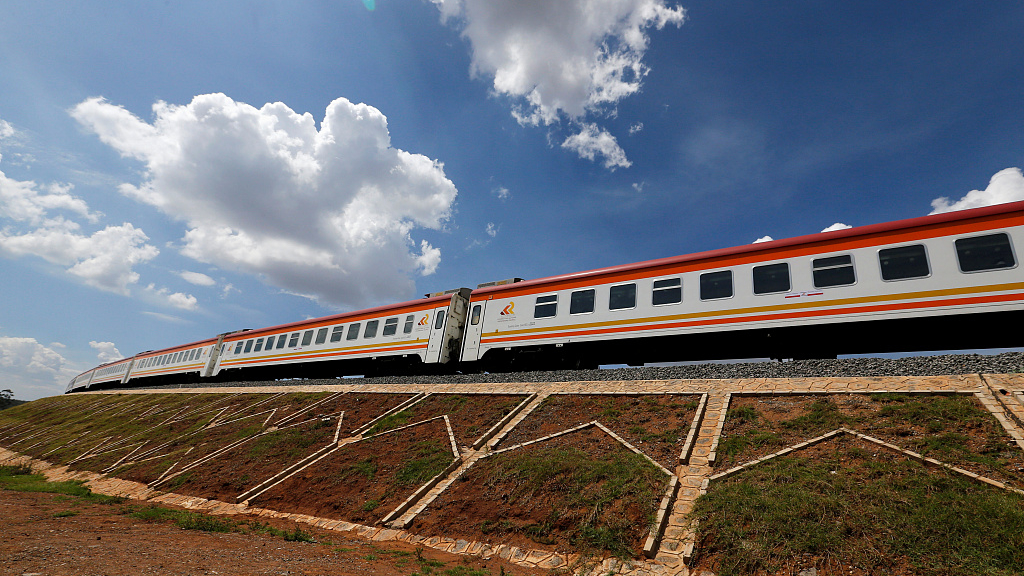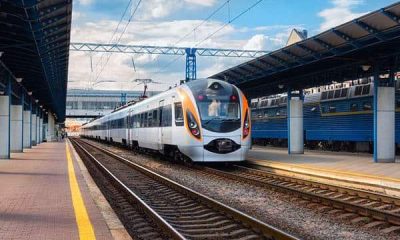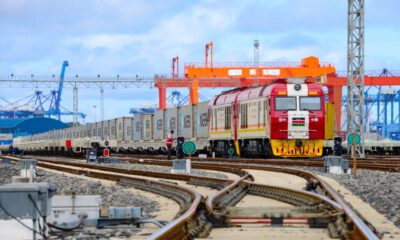News
Lobby Group Sues State To Have Secret SGR Contract Details Made Public

Okoa Mombasa and the Institute for Social Accountability (TISA) will today file a petition with the High Court seeking to obtain all contracts, agreements and studies related to the construction and operation of the Standard Gauge Railway (SGR).
The KES 450 billion (USD 4.2 billion) SGR is the most expensive infrastructure project in Kenya’s history, and was financed mostly via loans through the Export-Import Bank of China. According to government statistics, the SGR has operated at a financial loss since its inception – meaning its operations are not generating funds to help pay back the loans as planned.
Despite the enormous cost to Kenyan taxpayers, agreements and studies related to the project and its financing have never been made public.
The petition argues that the Constitution prohibits confidential contracts for public infrastructure projects, which by law require public participation and accountability. Keeping such contracts confidential, the petition states, is a violation of several Constitutional articles related to access to information, public finance management and transparency in governance.
“Our taxes are funding the SGR,” said Okoa Mombasa member Khelef Khalifa, who served as one of the petitioners for the court filing. “We have a right to know the details of the project: how our money is being spent, the consequences of a loan default, and the government’s decision-making processes in signing the deal. Right now, we know none of this – the Kenyan public is completely in the dark.”
Okoa Mombasa believes that publicly releasing the contracts will foster more informed public participation and debate around the SGR and its impact, as well as more accountability and openness in public finance. The latter issue is particularly important, given the Kenya’s growing and increasingly unsustainable public debt. The country’s current debt is at least KES 7.2 trillion, or 65% of GDP, but is projected to increase to 100% of GDP by 2030.
“This case goes well beyond the SGR – it’s about the survival of participatory democracy in Kenya,” Khalifa said. “Are we going to remain a country where leaders spend our tax money like it’s their own? Or are we going to start demanding accountability?”
Okoa Mombasa’s initial interest in the SGR documents stemmed from the project’s negative impact on the Coast region – and the lack of public participation on the issue of mitigating that impact. In an effort to increase revenues, the government in 2019 directedthat all containerized cargo at the Port of Mombasa be transported inland via the SGR. This forced logistics companies to move their operations to container depots in Nairobi and Naivasha, devastating Mombasa’s port-based economy.
The moves resulted in thousands of job losses and significant revenue loss for the Mombasa County government, and essentially amounted to a mass transfer of wealth and economic activity out Mombasa County to elsewhere.
A court declared the cargo directive illegal in 2020, but it is still in effect pending an appeal.
Okoa Mombasa resorted to the court filing after a long battle to obtain the SGR documents through other means. The coalition first filed a series of Access to Information requests with various government offices in December 2019, but failed to receive any substantive replies. Coalition members also staged as series of protests against the economic effects of the SGR in 2019 and 2020.
The official petitioners of record for the case are Khelef Khalifa of Muslims for Human Rights (on behalf of Okoa Momabsa) and Wanjiru Gikonyo, national coordinator for TISA.
Kenya Insights allows guest blogging, if you want to be published on Kenya’s most authoritative and accurate blog, have an expose, news TIPS, story angles, human interest stories, drop us an email on [email protected] or via Telegram
-

 Grapevine1 week ago
Grapevine1 week agoAlleged Male Lover Claims His Life Is in Danger, Leaks Screenshots and Private Videos Linking SportPesa CEO Ronald Karauri
-

 Lifestyle2 weeks ago
Lifestyle2 weeks agoThe General’s Fall: From Barracks To Bankruptcy As Illness Ravages Karangi’s Memory And Empire
-

 Grapevine4 days ago
Grapevine4 days agoRussian Man’s Secret Sex Recordings Ignite Fury as Questions Mount Over Consent and Easy Pick-Ups in Nairobi
-

 Investigations2 weeks ago
Investigations2 weeks agoEpstein Files: Sultan bin Sulayem Bragged on His Closeness to President Uhuru Then His Firm DP World Controversially Won Port Construction in Kenya, Tanzania
-

 Business2 weeks ago
Business2 weeks agoKRA Can Now Tax Unexplained Bank Deposits
-

 Investigations1 week ago
Investigations1 week agoEpstein’s Girlfriend Ghislaine Maxwell Frequently Visited Kenya As Files Reveal Local Secret Links With The Underage Sex Trafficking Ring
-

 News1 week ago
News1 week agoState Agency Exposes Five Top Names Linked To Poor Building Approvals In Nairobi, Recommends Dismissal After City Hall Probe
-

 Investigations22 hours ago
Investigations22 hours agoMulti-Million Dollar Fraud: Three Kenyans Face US Extradition in Massive Cybercrime Conspiracy




















